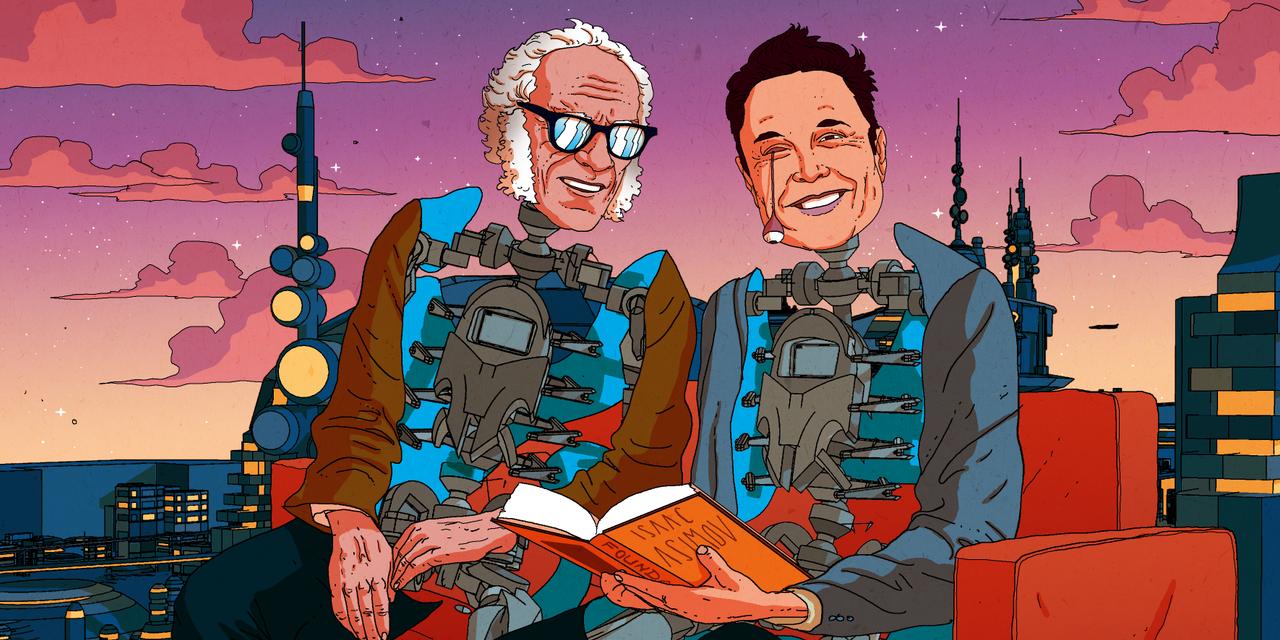


Part 5 will be available soon.
Part 5 will be available soon.
Musk Fictions
6 Parts
Articles in this series:
Part 5 will be available soon.
Isaac Asimov, Elon Musk and the replacement of humans by robots
In Depth'Musk fictions' (4/6). The American novelist, known for his prolific body of work centered on determinism and evolution, holds a prominent place in the personal pantheon of the SpaceX founder.
Surprisingly, Elon Musk and French leftist politician Jean-Luc Mélenchon share common ground: Both are admirers of the work of American novelist Isaac Asimov (1920-1992). Considered one of the founding fathers of science fiction, this tireless writer published an astonishing 500 novels between 1939 and his death. Within this vast body of work, these two famous fans are especially fond of the Foundation cycle.
This saga, widely regarded as the gold standard of science fiction, was initially launched as short stories in 1942, reworked into novels in the 1950s and then extended at the end of Asimov's life. As early as 1966, the series won the Hugo Award, a literary prize for science fiction, for "Best Series of All Time." It was a remarkable feat in a genre not lacking in masterpieces.
Asimov had a scientific background, considered a prerequisite at the time for being recognized as a credible author in the genre. He was also a versatile, eclectic thinker. According to his autobiography I, Asimov (2000), his precocious brilliance set him apart from other children his age, leading him to retreat into reading. Gifted, by his own account, with a phenomenal memory, he retained everything he read. Musk's entourage said the same thing about him when talking about the American entrepreneur's childhood with his biographers, Ashlee Vance and Walter Isaacson.
Aside from science, Asimov's great passion was history. Foundation tells the story of the fall and then the resurrection of a civilization. In the 13th millennium, the empire Asimov imagined was at the height of its power, yet had already begun an irreversible decline. Asimov drew inspiration from a 1776 classic by Edward Gibbon (1737-1794): The History of the Decline and Fall of the Roman Empire. According to the British historian, whom Asimov read countless times, Rome's fall was due to two causes: one external, the pressure of migration; the other internal, the rise of Christianity.
You have 80.31% of this article left to read. The rest is for subscribers only.



